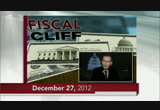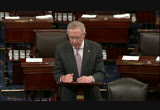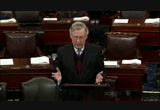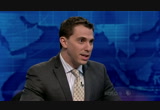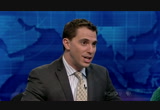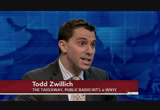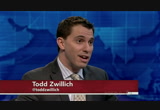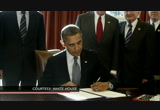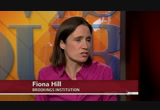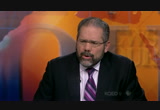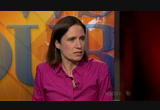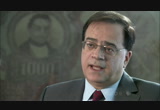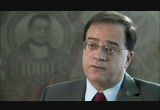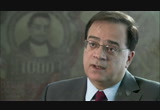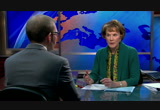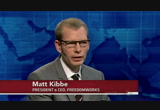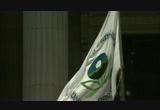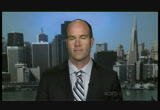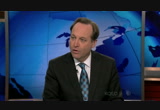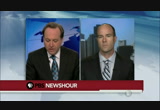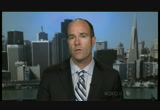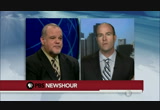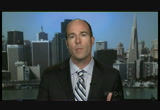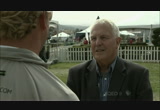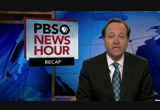tv PBS News Hour PBS December 27, 2012 3:00pm-4:00pm PST
3:00 pm
current debt debate? we talk with tea party ally, matt kibbe. >> warner: and as e.p.a. chief lisa jackson steps down, we assess the track record of the administration's environmental agency. >> brown: that's all ahead on tonight's "newshour." >> major funding for the pbs newshour has been provided by: ♪ ♪ moving our economy for 160 years. bnsf, the engine that connects us. >> and by the alfred p. sloan foundation. supporting science, technology, and improved economic performance and financial literacy in the 21st century.
3:01 pm
>> and with the ongoing support of these institutions and foundations. and... >> this program was made possible by the corporation for public broadcasting. and by contributions to your pbs station from viewers like you. thank you. >> warner: five days and counting with plenty of tit-for- tat charges, but no agreement in sight. that, in short, summed up the state of affairs in washington today as the fiscal cliff deadline loomed, january first. it would mean more than $600 billion in across-the-board tax increases and automatic spending cuts. >> come the first of this year, americans will have less income than they have today. if we go over the cliff, and it looks like that's where we're headed. >> warner: this morning, the senate's democratic majority leader, harry reid, was blunt
3:02 pm
about chances for a deal. and he blamed house speaker john boehner. just before christmas, boehner floated his so-called "plan b"-- letting taxes rise on millionaires. but faced with opposition in republican ranks, he pulled it, and sent the house home for the holiday. reid charged today politics explained why the speaker had not yet called the house back. >> john boehner seems to care more about keeping his speakership than keeping the nation on a firm financial footing. it's obvious what's going on. he's waiting until january 3 to get reelected to speaker before he gets serious about negotiations. >> warner: a boenhner spokesman shot back, "harry reid should talk less and legislate more." but late today, republican leaders put out word that the house will reconvene on sunday. yesterday, they challenged the senate to take the next step, by extending the bush-era tax cuts for all income groups. in a joint statement, they said,
3:03 pm
"the house will take... action on whatever the senate can pass, but the senate first must act. " president obama returned early from hawaii today, still pushing to extend tax cuts for the middle class, but raise rates on the well-off. aides said he made phone calls last night to speaker boehner and house minority leader nancy pelosi, as well as senator reid and his opposite number, minority leader mitch mcconnell. but today, mcconnell gave no indication of movement. >> last night i told the president we'd be happy to look at whatever he proposes, but the truth is we're coming up against a hard deadline here, and as i said this is a conversation we should have had months ago. and republicans aren't about to write a blank check for anything senate democrats put forward just because we find ourselves at the edge of the cliff. >> reporter: adding to the urgency, treasury secretary
3:04 pm
timothy geithner warned he'll have to begin taking "extraordinary measures" to postpone a government default. the government is on track to hit its borrowing limit on monday, he said with no prospect of congressional action to raise the limit. here now to help us unravel what's going on is todd zwillich. he's washington correspondent for "the takeaway" on public radio international. todd, welcome back. decode this for us. are the players privately as bleak about the prospects as their public statement suggests? >> not as bleak, margaret, but bleaker than they were even a week ago and that's not terribly encouraging. the president as you reported is flying back to washington last night and some members of congress are coming back earlier than others. there will be some meetings here, there have to be some meetings between the principals and the president. there are a couple of options in the last couple of days even
3:05 pm
though it seems like five days is terribly, terribly short. there shall bills floating out there to keep tax rates where they're at for people making $250,000 and below. that could slide around. there's a senate bill that floats around. there's the president's offer which could still be amended. option 3, of course. is to go over the cliff and fight this out on january 1. >> warner: are there any meaningful back-channel negotiations going on? >> leadership aides on both sides say the channels have been open even during the christmas break. when the president called senator mcconnell and others last night, senator mcconnell made clear to say that's the first time he's talked to a democrat since thanksgiving. now that sounds like they haven't been talking at all but that's not true because we all know the president and the speaker have been engaged in close negotiations and their staff even closer. even when the speaker and the president don't talk the negotiators do. >> warner: why late today did speaker boehner call for the
3:06 pm
house to reconvene on sunday? >> because he knows that there is going to be something probably to vote on and even if there's not the president has flown back, the senate is here, the country is watching. if you were the speaker of the house would you want your members to be seen as him on vacation zipping champagne on new year's eve and everybody else is in washington working. it's a combination of optics for sure, not wanting to be seen as off on vacation, but there is likely to be something that democrats muster to get voted on. it would have to probably get through the senate first but john boehner may need his members here. >> warner: now you heard mitch mcconnell refer to -- "we're happy to look at anything the president proposes." what is the president's role right now? >> well, the president ran on tax rates. the president right now, his role is knee deep, margaret. there have been other iterations of debt talks, supercommittee, where you saw the president try to really keep arm's length from a dysfunctional congress.
3:07 pm
the congress -- the democratic house and the republican senate have proved that they don't have any common ground on taxes. there's nothing that one side can agree to that the other side will agree to. that's the president's role here having run on tax increases for people making $250,000 and above, not to mention all that entitlement talk. he ran on it and he won. he'll have to fight this out next year for sure. he would like to get some of the math off of the table here if he can. >> warner: are there schools of thought in both parties that each may think he's going to be in the stronger position after going over the cliff? >> certainly. "people" on both sides who think that. liberal democrats in particular say this republican orthodoxy, no tax increases at all, remember, those bush tax rates expire on new year's eve and they say if we go over the so-called fiscal cliff, take all the tax votes you want, they're all tax cut votes.
3:08 pm
and conservative republicans believe their bargaining position improves. you reported on the debt limit but that becomes more of a concern as february approaches. they think they have leverage there to come bean the debt limit with the debate over more spending cut and more leverage on what they want from taxes. so there are strong voices on both sides so they say go over. >> warner: we better fasten our seat belts. ed to >> brown: still to come on the "newshour": a ban on adoptions from russia; the impact of austerity in greece; the tea party and the fiscal cliff and the administration's environmental record. but first, the other news of the day. here's kwame holman. >> holman: wall street was down much of the day, but trimmed its losses after news that the house will convene sunday to focus on the fiscal cliff. in the end, the dow jones industrial average shed
3:09 pm
18 points to close at 13,096. the nasdaq fell four points to close under 2,986. also today, the labor department reported the number of new claims for unemployment benefits fell this week to the lowest level since march of 2008. president obama is urging dockworkers and shippers to avoid a crippling strike at atlantic and gulf coast ports. it would be the first since 1977. the workers' union contract expires this weekend, and a white house spokesman said today the two sides need to agree on a contract extension as soon as possible. talks broke down last week in a dispute over wages and royalties. the christmas season storm that blasted the south and midwest swept across the upper northeast and new england today and the death count climbed to 16. the system dumped a foot or more of snow in parts of pennsylvania, upstate new york and new hampshire. in some places, snow brought road travel to a standstill. at the same time, operations at major airports improved, with far fewer delays than earlier this week. in india, the embattled prime minister remained under pressure to take action against sexual assaults after a gang rape this month triggered violent
3:10 pm
protests. manmohan singh promised a thorough review of india's rape laws and efforts to expedite trials. meanwhile, police moved to quell a rally by about 500 students protesting the treatment of women as they moved toward a monument in new delhi. the students complained officials had declared the site off limits. >> ( translated ): we are taking out this peaceful protest. we don't have any conflict with the police. we have just come here to express our stand. all the students are expressing their opinions here as you can see so the police should allow all of us to pass through to the place. this is only our demand and nothing else. >> holman: the rape that ignited the protests was that of a 23-
3:11 pm
year-old woman attacked by six men, then thrown from a moving bus. overnight, she arrived in singapore via air ambulance for treatment of severe internal injuries. doctors described her condition as extremely critical. the top prosecutor in egypt has ordered an investigation of major opposition leaders for allegedly inciting revolt. an official in the prosecutor's office said today the probe will focus on nobel peace laureate mohammed el-baradei, former foreign minister amr moussa and former presidential candidate hamdeen sabahi. all three oppose islamist president mohammed morsi and the country's new constitution. the new u.s. senator from hawaii democrat brian schatz was sworn in today. he'd been lieutenant governor for the last two years. now, he replaces fellow democrat daniel inouye, who died this month at the age of 88. schatz took the oath of office on the senate floor after being tapped by hawaii's governor. the new senator said he'll seek election in his own right, in 2014. inouye wanted hawaii congresswoman colleen hanabusa to take his seat. she said today she respects the governor's choice. those are some of the day's major stories. now, back to margaret. >> warner: we turn now to russia, where a proposed new law on adoptions, causing alarm in the united states, came a step
3:12 pm
closer to being enacted today. ray suarez has the story. >> reporter: in moscow today, president vladimir putin said he does intend to sign a bill that bars americans from adopting russian children. >> you know, after all in the world there are probably a lot places where the quality of life is better than here, but so what? are we going to send all the children there? maybe we should move there ourselves. we need to support the proposal which is directed at doing everything in our own country in order to provide for a worthy future for all of our children. >> reporter: yesterday, russian lawmakers gave final approval to the legislation. it was, pointedly, named after a russian toddler who died after his adoptive american father left him in a hot car in 2008. the adoptions bill is a direct response to "the magnitsky act," signed this month by president obama. it slaps sanctions on russian human rights violators. russian president putin and other kremlin leaders have roundly condemned that measure. >> this is without any doubt an
3:13 pm
unfriendly act towards the russian federation. and the main point here is not about officials that are not allowed to have bank accounts there or whose property will be controlled. >> reporter: but the russian response-- banning u.s. adoptions-- has garnered criticism even inside the country. >> ( translated ): concerning the law itself, of course it disappoints me, because we know a lot of instances when children who have no future here end up in the united states, and get a loving family and a future because the government takes care of them. >> reporter: americans have adopted more than 60,000 russian children in the past two decades. the impending ban means families currently in the adoption process are left in limbo. >> we've already started preparing our home. not remodeling or painting or buying furniture or anything but just preparing the emotional state of our home of ourselves and children for the change that is going to occur. >> reporter: for their part, senior officials in moscow have indicated that the bill will block children already selected for u.s. adoption from leaving russia.
3:14 pm
when it's signed into law, the adoption ban will take effect on january first. >> suarez: for more on all of this we are joined by lauren koch, the director of development and communications at the national council for adoption, a nonprofit organization that promotes adoption. and fiona hill-- a senior fellow at the brookings institution who recently served as the national intelligence officer for russia at the national intelligence council. her upcoming book is titled "mr. putin: operative in the kremlin." welcome to you both. fiona hill, is this even about adopted children at all or is this about a more confrontational stance towards the united states? >> well, it is now about adopted children which, of course, the story makes very clear. but it's come out of really campaign politics on both sides of the united states and in russia. mr. putin first actually survived a bruising campaign to become president again in spite of the fact that everybody saw him as a shoe-in and as part of that campaign he did ratchet up anti-american sentiment.
3:15 pm
he blamed protests that took place around the elections for the russian parliament and around the presidential elections, many thousands of people out in the streets in moscow and elsewhere, he blamed those on the u.s. support. he's taken punitive action against u.s. n.g.o.s. he's declared many non-governmental organizations in russia that received foreign funding, especially funding to the united states to be foreign agents, people now under a new legislation have to register themselves as foreign agents and this is also part of that. >> so by ratcheting up anti-american sentiment does this kind of thing play well where with the russian public? keeping the offense inside the country -- the orphans inside the country rather than letting them go into the united states? >> well, part of the story is also the legislation that's just gone through the congress that the president signed last week and this is seen in many respects as a tit for tat, the
3:16 pm
u.s. always, in the russian view applies a double standard and is always taking punitive action and applying sanctions against rush so that so this does play well. however, i think as we saw from the clips at the begining there's been some soul searching on the part of many russians about the this particular bill because this is a disproportionate action. this is something that hurts russian children as well as ordinary families. so this is really sort of taking things in a very different angle. >> suarez: lauren koch, in an era where international adoptions have become more common in the united states, where does russia rank as the home country of foreign-born adoptys here? >> historically russia has been one of the most popular sending countries to america. right now china is the leading country. russia is certainly in the top 5 with over 700,000 orphans in that country. there's certainly plenty of children who need a loving family here in the united states. >> suarez: how about that side of the story.
3:17 pm
unicef estimate there is's only about 18,000 russian families looking to adopt children. that's a disproportionate number considering the need for new homes. >> it is. last year alone here in america there were a thousand children adopted from russia. there are many american families, many of whom right now are in the process of adopting these children that are willing, ready, and able to adopt these kids, some of which have severe special needs. so it speaks to the heart of these american families that are willing to adopt these kids and bring them home. the. >> suarez: but there have been unfortunate stories that have gotten a lot of attention here in the united states and back in russia >> does that make things more difficult for your organization and others that are watching international adoptions? >> sure, well, i think what we have to remember here is there have been over 45,000 children from russia have that have come to america. most of whom thrive in healthy, successful families here. the very small number of cases
3:18 pm
of abuse, neglect and very terrible cases death shouldn't account for such a large number of successful adoptions that have happened. i would hate to see orphans in russia now suffer simply because of a couple of very tragic and sad instances here which, by all means, should never be overlooked. any cases in which a child is in a harmful situation should always be taken very seriously. >> suarez: fiona, we saw the russian president, mr. putin, talking about keeping the kids here and taking care of them here. is there a nationalist aspect to this? is it considered an embarrassment to russia that so many kids-- more than 700,000-- have no place to live? >> i think that's certainly case. in fact, if you look at these instances, there's always a national element to something like this. there's certainly plenty of people in the united states who also believe that would be parents should be adopting here in the united states and taking
3:19 pm
care of their own children. this is, as i said, a phenomenon that you hear in european count reis and others that there's resistance building up in many places to transnational, to international adoptions and often this kind of sentiment plays very well but i think as lauren will probably tell us, from the very statistics it doesn't always translate into stepped-up adoptions at home and certainly not into more many orphanages and for the extensive care systems that children require. so actually i have to see if because mr. putin is now stuck some of his reputation on this, he made those pronouncements as we saw on the t.v. clip at his big annual press call and he's laid out in many respects a commitment to do more so we'll have to see if that is indeed the case. >> suarez: lauren, haven't other count freeze time to time either curtailed or shut down totally the flow of children to the united states? >> we have seen this. most notably probably guatemala,
3:20 pm
ethiopia. that was a potential recently. we've also seen president putin threaten very similar bans on american-russian adoptions in the past. and he has before now never signed a ban like that and what we can hope for right now is that he won't find it still and that we can make sure these children find safe, loving families. >> suarez: this isn't the only irritant in the russo-american relationship, is it, fiona. hasn't the russian duma recently passed another bill making it difficult for the united states? >> they have. as i already mentioned, unfortunately we've been in this reciprocal actions and legislative combat for several months now since the election campaigns on both sides of the atlantic and we've already seen the russian duma pass legislation that's been punitive against some governmental organizations in part driven by the this idea that the u.s.
3:21 pm
government is sponsoring some of the political protests against president putin's presidency. so we're in that kind of phase that unfortunately we're in very frequently in the u.s.-russian relationship. if we look back over the last 20 years, since the collapse of the soviet union, we've constantly tried to reset the relationship with russia and time and again after a brief period of you poor ya about a new partnership or start, we end up within several months to a year of being right back again to some kind of spot over spying, over legislation that's perceived as a double standard by the russians or over some large issue. there's many irritants, unfortunately, in the relationship. >> suarez: fiona hill, lauren koch, thank you both. >> thank you. >> brown: next, the european financial crisis as it's playing out at street level. i had a chance to see for myself recently on a reporting trip to athens.
3:22 pm
for nearly two decades, stelios karagilanis, a father of two, headed a family-owned construction company. today, his business closed, he is forced to accept free medical care and food from an aid clinic. >> ( translated ): we never imagined it. we were never wanting for work and we had a very dignified lifestyle. >> brown: is it hard to have to come here? >> ( translated ): it is very, we are not used to this way of life. >> brown: karaglilanis and others we met in athens recently put faces to grim statistics: a stunning 26% unemployment rate. 58% for young people like george georgopoulos, a college graduate who's decided he must leave the country for now. >> i hope to move abroad for a master's degree. it was my dream. but now i have to do it.
3:23 pm
>> brown: greece's economy is entering its sixth year of recession and has shrunk by a fifth in just the last three years. paralyzing businessmen like shipbuilder vassilis halkitis, who had to lay off half his workers. >> ( translated ): we're talking to a major client about building six new ships of 60 meters in length. however, the client is holding back on the contract until he is convinced that greece will not go bankrupt. >> brown: for individuals it all adds up to a reduced standard of living and an uncertain future. for greece as a whole, it means that and more. the headlines are about finance ministers, debt deals, austerity measures. but it's become clear that he problem here in greece now goes well beyond just the economy. as a recent european commission report says: after years of weak growth, the crisis is now having severe social consequences. look up and you still see the
3:24 pm
ancient acropolis, symbol of a glorious past. and some parts of the city bustle with holiday energy. but not far away: closed-up storefronts. and, further below the surface, this: a health clinic set up by the greek branch of the international aid group, doctors of the world to serve the country's newly poor. dr. nikitis kanakis is its director. >> brown: kanakis group, in fact, had to cut back some of its work in africa because of the needs at home. here in perama, unemployment tops 50% as the shrinking economy has crippled much of the local shipping industry. at the same time, the deeply indebted greek government has
3:25 pm
made dramatic budget cuts, including to health benefits. the combination has left many here without access to private or public care. and that's meant a stunning rise in disease and mortality rates. >> brown: economists, of course, speak of a different kind of necessary medicine: the kind a deeply indebted nation must take. the price for living and consuming well beyond its means for far too long. >> the medicine is necessary. it was, though, delivered very abruptly. >> brown: as a government economic advisor, gikas hardouvelis helped negotiate some of the budget cuts and austerity measures greece agreed to in order to get international
3:26 pm
bailouts, more than $300 billion now with the private eurobank, he says the swift fall, however necessary, is bringing pain at historic levels. >> by the end of 2013 greece would have a worse depression than the great depression in the u.s. >> brown: worse than the great depression? >> yes and this depression is affecting everyone. i would say the middle class is carrying the burden and it is carrying the burden because the state sector is unable to distribute the burden in an equal way. >> brown: and that has hardouvelis worried about a further consequence: a tearing of the social fabric. >> they simply lost their living standard and they're trying to find a scapegoat for it. it's very important in this period for greeks to see the positive side of things and not eat each other up. >> brown: "not eat each other
3:27 pm
up": the scapegoating, so far, has centered on immigrants from africa, afghanistan and elsewhere. by boat or across the turkish border, greece has functioned for years as an easy-to-enter gateway into the rest of europe. and one that by all accounts has made a mess of its immigration system. many migrants are illegal: largely tolerated in good times, but increasingly for greeks, no more. >> ( translated ): i don't have a problem with immigrants in general. but i have a problem with those who come here and don't find work and they resort to crime. >> brown: and has this been getting worse? >> everyday it's getting worse. >> brown: this man said he opposes violence against immigrants. but others clearly feel differently and the anti- immigrant sentiment helps explain the rise of the golden dawn party, which won 18 seats in parliament in the last election and has seen its popularity grow further in more recent polls to third among all
3:28 pm
parties. golden dawn describes itself as greek nationalists. but, with its swastika-like symbol, its rhetoric and street tactics, it's widely seen as neo-nazi. and its supporters have become more brazen in carrying out physical attacks on migrants, including this one caught on camera in a market in rafina in august. underneath the joy of a recent sunday service at the faith apostolic church in central athens. the poisonous atmosphere has shocked parishioners, mostly from nigeria and elsewhere in africa. rev. jimoh adebayo says members of his congregation have been beaten by golden dawn sympathizers, while the police seem to look the other way. >> some have been stabbed, attacked, manhandled. they've come to me, shown me their wounds. some have reported it to the police and the police say they
3:29 pm
will investigate. >> brown: and do they? >> that is the big question mark. >> brown: abigail linus, who earns some money as a nanny, plays and sings in the church choir. >> you have to be afraid. when you hear things going around in the whole of greece, you have to very, very scared to go out. >> brown: so you think this is >> brown: the question for many here now: how deep are these angry, even violent currents in the society? yannis lagoudakos, a former mayor of perama who's planning to re-enter politics, predicts things will get much worse. >> ( translated ): there is an anger against the national, the central government which hasn't yet expressed itself and it's building up like water behind a dam, waiting to break out. they're going to start smashing shop windows and grabbing things and ultimately i wouldn't put it past the greek society to storm parliament.
3:30 pm
>> brown: others though, insist the majority of greeks will continue to show great patience amid the austerity, frustrated by their politicians and angry at what's seen as the haughtiness of richer european partners such as germany, but understanding that things have to change. economist hardouvelis says greeks just need to believe that what's happening now really is leading toward a better future. >> once the depression stops and once the people start seeing the light at the end of the tunnel, then things will turn around. >> brown: is that your hope? or is it a forecast? >> i think in a year and a half we'll see stability. and the big question is whether the political system will be able to accommodate that period. >> brown: a year and a half more at best. small comfort for stelios karaglilanis and his family,
3:31 pm
facing the onset of winter-- it's too expensive to turn on the heat, he told us-- and a christmas unlike any he'd ever imagined. >> brown: there's more online from my reporting trip, including conversations with greek writers. find that on our poetry and art beat pages. >> warner: we return to our series of different voices and viewpoints on the nation's fiscal cliff debate. tea party activists took aim at government spending three years ago, with protests and rallies in washington and elsewhere. the national group freedomworks organized many of those events and financed fiscally conservative tea party-backed candidates in 2010 and this year. so where does the tea party movement stand on the fiscal decisions at hand today? for that, we turn to matt kibbe, freedom works president and ceo.
3:32 pm
welcome back to the program. >> thank you. >> warner: so the fiscal cliff is now nearly upon us. does that alarm you or do you welcome it? >> it alarms me, but this is not a crisis that wasn't predicted at least ten years ago when the bush tax rates were first established. i think -- i remember a time when december was quiet in washington, d.c. because congress actually did its job and passed the budget by the beginning of of the fiscal year in october. so there this government by crisis, this budgeting at the last minute is a new thing and it's a real problem. >> warner: explain to us the tea party's view here. last week, when speaker boehner -- when house republicans,-- some of them-- revolted against his attempt they have to plan "b," tax on millionaires, many in the tea party-- at least that i read about and heard-- cheered him, cheered the revolt. why? >> oh, yeah, we did as well. the problem is that you can't
3:33 pm
get to real tax reform at the end of the day in a crisis and if barack obama-- who's the only man that can stop a massive tax increase on january 1-- wants to do that, there's nothing house republicans can do to stop it. >> warner: with but explain why they were -- i mean, was it just that any deal that raised taxes period -- no compromise was worth that. >> it's hard to compromise when there's not two sets of ideas on the table. the senate democrats have never passed a budget resolution so how do you split the difference? what we'd like the see, the only rational solution at this end of the game is do extend the current rates for another year like was done in 2010 and let's go through regular order. let's actually write a tax bill out of the ways and means committee. let's have the senate democrats debate that. let's go through the normal budget process, pass a budget resolution by april 15 because the only way you'll get to the real issues which are tax reform and real entitlement reform, that has to be done through regular order. it's not going to be done in a back room at the end of this
3:34 pm
year. >> warner: that's what was said last december when the budget control act was adopted which is the sword of damocles hanging over the whole process. and it didn't happen. >> well, the sequester remember is a different issue. >> warner: the across-the-board spending cuts. >> it was promised to us in exchange for another $2 trillion increase in the debt limit so i view that as a promise that was made by both republicans and democrats to cut just a hair cut off of the rate of growth and spending. >> warner: so let's go back to the tea party's approach here. would you stay tea party has made its influence felt anyway in that it helped elect many of the fiscally conservative house republicans who revolted against boehner last week? >> i think part of the chaos you're seeing is that seismic shift in the conversation starting with the 2010 class because we were debating up until that point how many trillions in new spending to put on the table. instead, we said let's talk
3:35 pm
about how we're going to balance the budget. so we're still having that fight today. we're debating what to cut. we have both republicans and democrats who have actually put some nominal reductions in the rate of growth and spending. that's a healthy start but such a baby step when you're debading $100 billion out of a $1.3 trillion deficit. that's not draconian, that's not even that serious. >> warner: let me ask you this. the tea party has been since its -- at least inception when it burst on the national scene in '09 against the obama health care plan. been very vocal, had rallies and protests voiced its view and put pressure on lawmakers. they have not done that this -- in this go-round. there's no rallies calling on members of congress to stand firm against any compromise. what what explains that? >> i think it's a seshl movement and it's evolved dramatically from those protests in 2009. we were involved in those and those were very important at that time. you're seeing an evolution in developing sophistication at the very local level amongst
3:36 pm
activists. they're very aware of what's going on on the fiscal cliff. they're very aware of what a budget resolution is and you see that pressure applied to both republicans and democrats. >> warner: quietly. >> well, we're not a protest movement anymore. we're something else. we're going to be seating candidates, recruiting candidates in the next cycle and that's a level of sophistication we didn't have in 2009. >> warner: will the tea party exact retribution on republicans who do vote for any compromise that includes any tax increases? >> i think -- i can just speak for freedom works. i think we look at the entire two year cycle of a representative's voting records and it's not just about one thing. what we'd really like to see is not just a debate about taxes but how about spending? how about doing something to balance the budget? all of these things matter if we get the burden off of the economy and see growth again. >> warner: i think most of you
3:37 pm
would agree on that that it needs a wholistic view but new the meantime, if a member of congress wanted to know how his tea party supporters in his district felt, would they be saying to him or her "let it go over the cliff if you have to vote for something you can be voting for tax cuts"? i think they're going to hear don't raise taxes, balance the budget, do what you promised you would do in your election and none of that, nothing rational is going to come out of a last minute panic washington, d.c. so let's extend the current rates, let's promise to go through the normal process. they didn't do that after the supercommittee. why not go through the regular order so that all americans can see what their representatives are actually up to. >> warner: matt kibbe of freedom works, thank you so much. >> thank you. >> brown: now, a resignation brings an assessment of president obama's environmental policies in his first term and a look ahead to his second.
quote
3:38 pm
she's been the president's point person on the environment for
3:39 pm
opposition from republicans and industry over the cost and
3:40 pm
four years in as the obama administration -- has the obama administration achieved what you'd hoped for? >> four years in the obama administration has done a great job and they do have some unfinished business but when you look at doubling the vehicle efficiency in just four years, that's a remarkable achievement. taking the amount of mercury and arsenic and die i don't think serious bodily injurys and air toxics out of the atmosphere from coal-fired power plants, that's an amazing victory. when you add on top of that a rule that was just announced last month to limit the amount of soot coming from power plant facilities across the country, those are just three rules among dozens that have had a big impact on keeping our air clean, our water safe and starting to reduce greenhouse gas emissions. a good record to build on. >> brown: kenneth green, what's your overview? >> i think when history looks back it won't give lisa jackson a particularly good record as e.p.a. administrator.
3:41 pm
when she came in she was overshadowed by carol browner who was the czar who gets the credit for the fuel economy standards, i believe. and she's maintained a very adversarial relationship with industry. the e.p.a.'s culture of anti-industry, anti-businessmenalty continues so it was under lisa jackson's watch we had somebody saying we're going to crucify some companies -- and this is the administrator, that we're going to crucify companies in order to set examples. >> brown: crucify and terror? >> crucify and terror. so this has been the culture she's overseen. she's gotten some regulations through but she was publicly slapped back on the ozone standard in a way that is inconceivable carol brown would have stayed as head of the e.p.a. >> brown: michael brune, you focused on the successes. there seem to be cases where lisa jackson wanted to go further than the president or white house advisors were willing to go. >> i think that that's probably
3:42 pm
true but we have to acknowledge if history has any judgment on the last term, what his will say is that we are living in historically partisan times and it's just not possible for any member of the administration to not get attacked. certainly from the fossil fuel industry and certainly from members of the republican party. but the you look carefully at what lisa jackson and the entire e.p.a. was able to accomplish in just four years and compare that to eight years of the bush administration, you can compare it to almost any administration since e.p.a. was created more than 40 years ago you would say fairly that this has been an outstanding four years. the result of that is that thousands of lives are being saved every year. the quality of life for millions of americans has been raised because our air is cleaner, our water is cleaner and now we've got a real shot at reducing
3:43 pm
greenhouse gas emissions. that's a record to be proud of. >> brown: kenneth green? >> these trends of environmental improvement have been set for 35 years or better. you are a air has been getting cleaner and our water has been getting cleaner as much because our technology has been getting better and we keep ratcheting standards from superclean to ultra clean to pure. this is one of the things that the e.p.a. has come up with. the e.p.a. has played fast and luce with its benefits calculation. the claims it makes with these new rules. >> brown: so you're questioning whether they've accomplished what they say they've accomplished? >> whether the benefits of the regulation will be what they promised and whether the cost will be as low as they estimated. outside analysts have looked at their methodology and e.p.a. seems to consistently overclaim benefits, health benefits especially, and underassess the cost to the regulations and the economic impacts that americans will face. >> brown: but what about this partisanship notion that michael brune brought up that in this
3:44 pm
political atmosphere that's inevitably what's going to happen and that's what she faced and the administration faces. >> i think that's a fair assessment. she gave as good as she got and when the administration came in they set a certain tone. they said they were going to be the most transparent administration ever and how did they do the vehicle fuel economy stan sdmardz chro n closed-door session with no notes were allowed to be taken to record the series of events usurping the traditional route of setting cafe standards through the national highway traffic safety administration. so if there's credit to be given for polarization and partisanship both sides get their share. >> brown: that fair, michael brune? >> no, we're reaching a level of silliness here. e.p.a. has had countless public hearings to talk about those vehicle standards. i testified at one. kenneth, you probably should have done the same. but let's look at the results. as a result of this standards in which more than a million comments were submitted, by the way, as a result of this standard consumers will save money at the pump, we'll reduce
3:45 pm
our dependence on oil by several million barrels of oil per day and this one rule will cut greenhouse gas emissions by 10% why xhi wide when it's fully implemented. that's a huge victory. that's a huge victory and it was done through a lengthy process that e.p.a. drove. >> brown: i want to try to end by looking forward and you can start, kenneth green. what do you see is the biggest priority either to push forward or stop in your case, perhaps, in the coming -- in the next term? >> i think there's a pipeline loaded up with regulations that have been somewhat delayed and slow and now if they feel they have carte blanche to push them, the uncertainty they're going to create in the business economy and the energy sector and technology sector could overwhelmingly damping economic growth. could harm the country. for example, the vehicle fuel economy standards, well, the
3:46 pm
chevy volt won't meet them and it costs $40,000, twice the cost of a comparable vehicle. your vehicle costs will be going up as a result of new rules over time and up significantly. >> brown: michael brune, the last word from you, what do you see as the biggest priority going forward? >> meeting the challenge posed by climate change. the president has said climate change will be one of his top three priorities and what we're looking for from the president and e.p.a. is an ambition to match the scale of the challenge. so that will manifest itself -- in the first couple months it will manifest itself in two key tests. one is whether or not the tar sands pipeline gets approved or whether we invest in clean energy instead. of course we think that clean energy will produce more jobs and improve the quality of air and and water at the same time. secondly to regulate carbon pollution from existing power plants. all of the coal-fired facilities you see across the country. the refineries as well to make
3:47 pm
sure we continue to invest in clean energy and begin to wrestle with the challenge of climate change so that we have fewer droughts, fewer wildfires and fewer superstorms. >> brown: michael brune, kenneth green, thank you both very much. >> thank you. >> warner: finally tonight, an encore look at the world's fastest sailboats and sailors. san francisco will host the america's cup finals next september, but the city has already been gearing up. "newshour" correspondent spencer michels has our story. >> reporter: ever since 1851, sailors and well-healed skippers have raced through the water in ever more expensive, ever-more high tech sailboats in pursuit of the coveted america's cup. to the victor go the spoils, and in 2010 larry ellison, founder of software giant oracle, won the cup for america. ellison's prize, besides bragging rights, was to get to
3:48 pm
choose where the race would be held next. his choice was to bring the contest to his home waters: san francisco bay. ellison concocted a series of regattas all around the world-- for competing teams from 11 countries-- designed to build enthusiasm and excitement for the main event: america's cup 2013, where 72-foot boats will plough through the bay. these preliminary races featured boats that measure about 45 feet long, with carbonfibre hulls and wing sails, as described by racing announcer andy green. they're the same sailors. they're the same teams, the boats are just a little bit t'thirr. practice racing. this is just to get everyone excited and passionate about the sailing. the prelims going on now-- with the showdown next year-- will be the first time spectators can easily view the races from the
3:49 pm
land. usually these events were far enough out to sea that watching them was much easier from a boat. and that limited who could attend. over the last few years, very simple now. basically, you can see the boats racing, you can see them right in front of the shore, and its very clear who's winning and who's losing. >> reporter: and to help green and tv viewers, cup officials are employing a graphics system to make the televised regatta races understandable, somewhat like the virtual first-down line for television sports broadcasts. adam fisher wrote about the system for wired magazine. you know the t.v. coverage is crystal clear. you know who's winning, a lot of people looking at the coverage seem to think that there is dye
3:50 pm
in the water, it's so life-like. but it's all digital >> reporter: the design of the 72 foot boats is continuously being tweaked, but nobody is talking much about details, as the work goes on in secure locations like this old san francisco pier. but the beauty of the boats-- big or small-- is only part of the story. as spectacular and graceful as the boats are, the process of arranging these races in san francisco was clumsy and contentious. to get the races, san francisco had to agree to ellison's demands that he get development rights to some old piers along the bay, in return for renovating those piers for the city. the city was eager to go along, because-- as americas cup ceo stephen barclay said-- the rewards in jobs and money would be substantial. the america's cup coming to a city is all about the economics. and san francisco did its own
3:51 pm
numbers, and they said that its going to bring $1.4 billion worth of economic benefit here and 9,000 jobs. >> reporter: but a disappointed san francisco mayor ed lee announced that the agreement and the promise of many of those jobs was going by the boards, after cup organizers decided that developing the pier would cost too much. still, the city and oracle went ahead with race plans. others were relieved; they saw the arrangement with ellison as a giveaway of city property. and still others feared environmental consequences of too many visitors and non- recreational uses of waterfront land. then there was the matter of boats: originally, organizers thought up to 15 72-foot boats could compete. but they cost millions, and in the midst of a worldwide recession, only four of them, plus elison's, decided to take part. nobody is suggesting the race will be a bust, but the
3:52 pm
prospects for the city and the cup itself are not as bright as they had been. >> the event is going to be bigger and better than it has been in a generation, however, in other cities in the past where the america's cup has taken place, there has been a huge amount of property development along the waterfront, kind of like, say an olympics. that is not going to happen in san francisco. still, for sailing fans and some who are not. the prospects of international competition and just the chance to watch the big boats glide through the fog and into the wind is reason enough to support the race. i like the turns. >> i like to see them keel up. >> reporter: why? >> it's exciting >> reporter: so it's kind of graceful >> majestic. >> reporter: majestic? but some people say well, with a lot of money you can make it majestic you know this is a rich
3:53 pm
man's sport. >> that's okay. i like watching rich men sail. >> it's a rich man's sport it >> reporter: but that doesn't bother you its still fun to watch. >> reporter: the practice races in 45 foot catamarans continue on and off through may of next year, followed by the finals in the america's cup in september of 2013-- the time of year when the fog usually lifts from san francisco bay. >> brown: again, the major developments of the day: president obama and the senate returned to work, with five days left until the fiscal cliff of tax hikes and spending cuts. the house planned to reconvene on sunday evening. a christmas season storm rolled through the northeast and new england, as the death toll climbed to 16. and lisa jackson announced she's stepping down as administrator of the environmental protection agency. and online, we've got a unique year-in-review of sorts. kwame holman has more. >> holman: science correspondent
3:54 pm
miles o'brien has had a most interesting 2012. he's crawled in sewage, cuddled with dolphins and played guinea pig to lots of experiments. watch some of the best outtakes of miles' science stories on the rundown. and we round up the most important lessons we've learned about helping kids stay in school from our series, american graduate. all that and more is on our web site newshour.pbs.org. margaret? >> warner: and that's the "newshour" for tonight. i'm margaret warner. >> brown: and i'm jeffrey brown. we'll see you online and again here tomorrow evening with mark shields and david brooks among others. thank you and good night. >> major funding for the pbs newshour has been provided by:
3:55 pm
3:58 pm
>> thi>> this is "bbc world news america." funding for this presentation is made possible by the freeman foundation of new york, stowe, vermont, and honolulu. newman's own foundation. and union bank. >> at union bank, our relationship managers work hard to know your business, offering specialized solutions and capital to help you meet your growth objectives. we offer expertise and tailored
3:59 pm
solutions for small businesses hot and major corporations. what can we do for you? >> and now, "bbc world news america." >> president obama cut short his holiday to try and reach a budget deal with republican opponents before the end of the year physical cliff deadline. >> anytime the speaker and republican leader come to the president and say we have a deal for you, the president's door is always open. >> told people reported dead from the storm to in the midwest. the son of pakistan paulson murdered a former prime minister benazir bhutto that pledges to fight to maintain democracy. welcome to "bbc world news." welcome to "bbc world news."
385 Views
IN COLLECTIONS
KQED (PBS) Television Archive
Television Archive  Television Archive News Search Service
Television Archive News Search Service 
Uploaded by TV Archive on

 Live Music Archive
Live Music Archive Librivox Free Audio
Librivox Free Audio Metropolitan Museum
Metropolitan Museum Cleveland Museum of Art
Cleveland Museum of Art Internet Arcade
Internet Arcade Console Living Room
Console Living Room Books to Borrow
Books to Borrow Open Library
Open Library TV News
TV News Understanding 9/11
Understanding 9/11